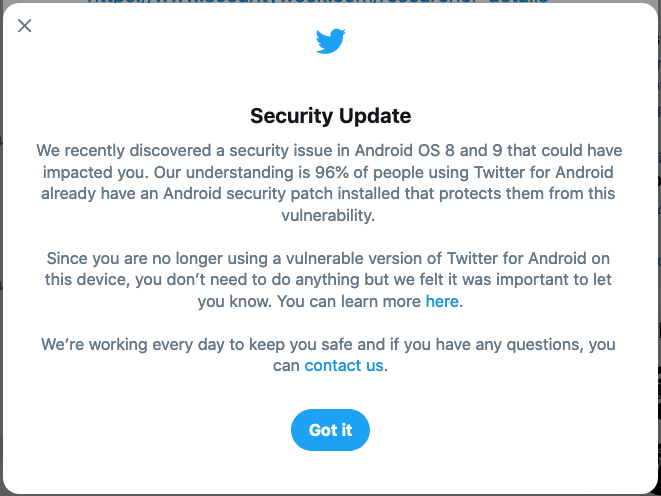Twitter informed customers on Wednesday that a vulnerability in its Android app could have been exploited by malicious applications to access private data.
According to the social media giant, the flaw is related to a vulnerability that affects Android 8 and 9, which Google patched in October 2018.
“Our understanding is 96% of people using Twitter for Android already have an Android security patch installed that protects them from this vulnerability. For the other 4%, this vulnerability could allow an attacker, through a malicious app installed on your device, to access private Twitter data on your device (like Direct Messages) by working around Android system permissions that protect against this,” Twitter explained.
The company says there is no evidence that the vulnerability has been exploited, but it cannot completely rule out the possibility so it has decided to take some steps to protect users.
It has updated the Android app to prevent external applications from accessing Twitter data, it has informed potentially impacted users to update the application, it has sent in-app notifications to users who could have been vulnerable to inform them if they need to take any action, and it has been working on making changes that would better protect users against such attacks.

Last year, Twitter informed customers that a bug in its Android app led to protected tweets being made public.
Other security issues, which the company disclosed in recent months, resulted in personal information being exposed due to the way Firefox stores cached data, and the billing information of businesses being exposed through its ads and analytics services.
Related: Bug Exposed Direct Messages of Millions of Twitter Users
Related: Bug Gives Twitter Apps More Permissions Than Shown
Related: Twitter Suspends Fake Accounts for Exploiting API Vulnerability
Related: Vulnerability in Twitter App Enabled Hackers to Obtain Information, Control Accounts












